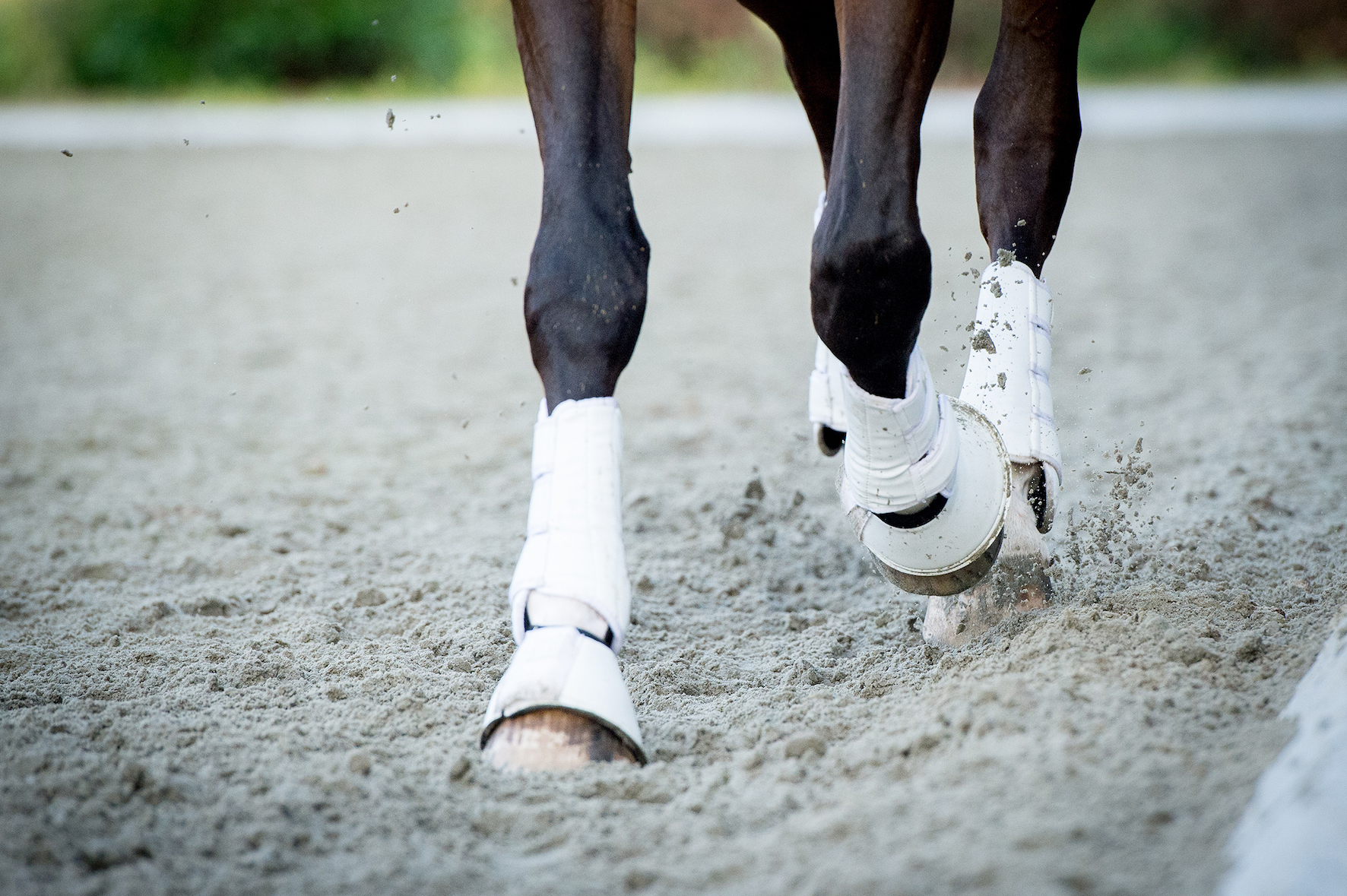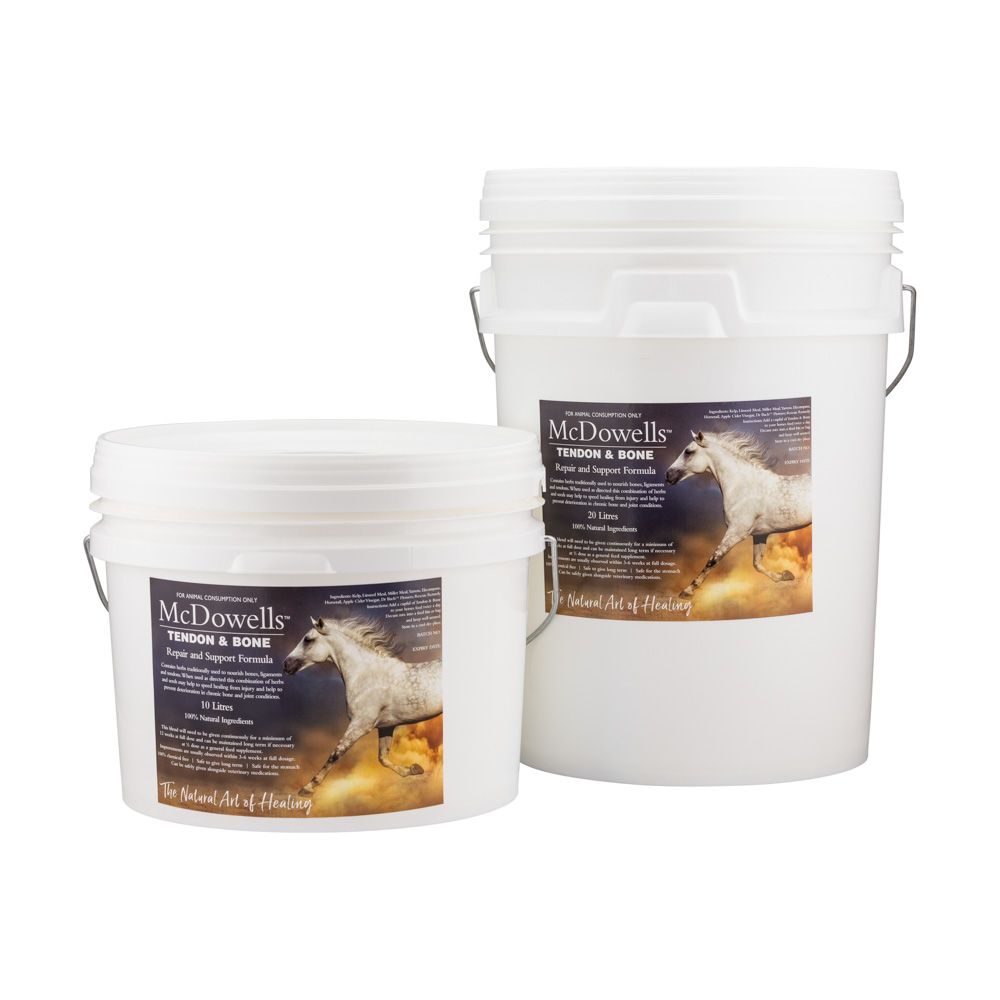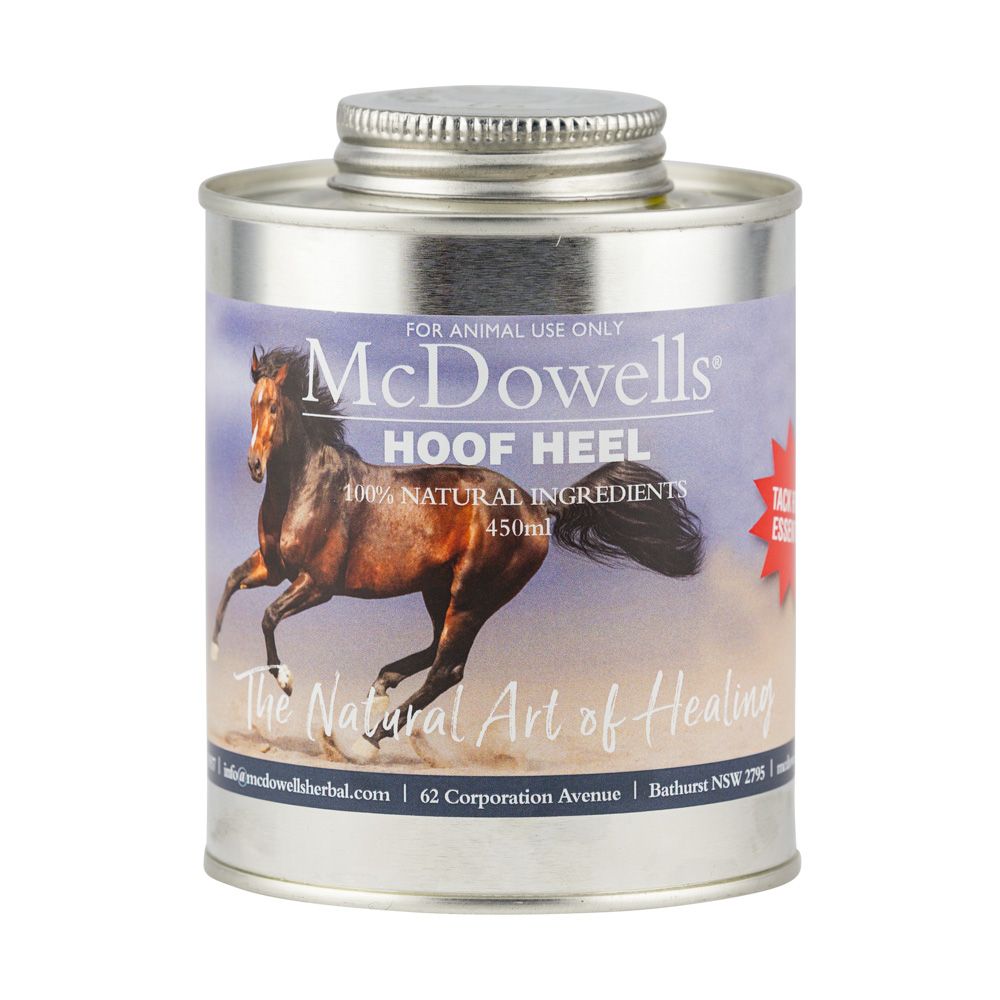Lameness issues of the equine occur for several reasons. Over, or incorrect, training and work, conformation, fatigue or training a horse too young can contribute. The healing process in the legs can be slower due to lower blood supply to the tissue and bone.

Bowed Tendons
Both the deep and superficial flexor tendons are subject to strain in peformance horses. It produces heat and pain, thickening may also occur due to scar tissue in chronic cases.
Bone Spavin
This is a boney enlargement on the antero-medial aspect of the hock. It limits movement and may produce lameness.
Bog Spavin
Sudden bursts of heavy work may produce this condition in a young horse. This is a soft, fluctuating swelling on the inner aspect and front of the hock. Faulty confirmation of the hock can predispose to this happening.
Laminitis
May have a history of wheat grain feeding and over-exercising. Signs include high temperature, sweating in patches, having to balance self, groaning, unable to rise, scouring, wasting and wrinkling of hoof.
Navicular Disease
Lameness resulting from this condition varies from mild to severe to recurrent. It involves the inflammation and deterioration of the distal and lower sesamoid and adjoining structures chiefly the navicular bone.
OCD
Osteochronditis Dissecans results in the articular cartiledge splitting away from the underlying bone and becomes free in the joint. It effects the hock and stifle joint. Fragments of bone become "free" in the joint cavity.
Pedal Osteitis
This is a common condition in trotters and galloppers on hard tracks resulting in inflammed conditions of the feet involving the solar aspects of the foot.
Sesamoiditis
Can be associated with hard training for long periods, fast exercise predisposes to fractures.
Splints
Exotoses between small and large metacarpal bones. Splints comprise boney swellings due to inflammation of the periosteum (coverings) of cannon bones.Splints oocur in young horses put to heavy work. Splints can result in low grade pain and possible lameness. Horses with bad action and poorly formed are prone to these problems.
McDowells Programs
All of these conditions are treated successfully with our Tendon and Bone mix and Hoof Oil.
Tendon and Bone
This combination of Elecampane along with Kelp Granules, Ground Linseed, Ground Millet, Yarrow Herb and the Bach Flower Rescue Remedy promotes the re-growth of attachment points and the re-tensioning of stretched or damaged ligaments.
Elecampane promotes the accurate and healthy growth of cells and so is a stimulant to fibroblast and osteoblast activity due to its allantoin content. It is also the highest vegetable source of Vitamin B 12 and is useful for healing all cases where there has been tissue breakdown.
Hoof Oil
This oil-based treatment is a mixture of herbal oils and extracts which heats and brings circulation to all tissue and bone in the area. It assists with healing both bones and ligament attachments and any other damage, while improving circulation dramatically and reducing inflammation.



